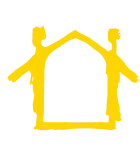– საქართველოს მაღალმთიან სოფლებში შესაბამისი გარემოს არარსებობის გამო სკოლებში სულ უფრო ცოტა ბავშვი რჩება
– საქართველოში 1990 წლიდან სამი სხვადასხვა საომარი კონფლიქტის დროს უგზო-უკვლოდ დაკარგულად 2400 ადამიანი ითვლება – მათი ოჯახები საჭიროებენ სხვადასხვა ტიპის ფსიქოლოგიურ თუ ეკონომიკურ მხარდაჭერას.
– საქართველოს მოსახლეობის 6,3% ეთნიკური აზერბაიჯანელია. დღემდე პრობლემურია მათი საზოგადოებაში სრულყოფილი ინტეგრაცია.
– საქართველოში შშმ პირებისთვის საჭიროა მეტად ადაპტირებული გარემოს არსებობა
– საქართველოს მოსახლეობის 9,9% მუსლიმ რელიგიურ უმცირესობას წარმოადგენს.
– მუსლიმ თემში განსაკუთრებით პრობლემურია გენდერული თანასწორობის და ქალების საზოგადოებრივ ცხოვრებაში ინტეგრაციის საკითხები.
ეს იმ ქალების ხმაა, რომლებიც ზრუნავენ საკუთარი და სხვისი უფლებების დასაცავად, რომლებიც ცდილობენ შეცვალონ გარემო იქ, სადაც ცხოვრობენ, რომლებისთვისაც პრობლემა მხოლოდ გამოწვევაა, რომლებიც ცდილობენ გააუმჯობესონ საკუთარი, სხვისი, ჩვენი ცხოვრება.
ვიდეო მომზადებულია პროექტ „ახალგაზრდა ქალი ლიდერები და „უჩინარი ქალები“ – უფლებადამცველი აქტივისტების მხარდაჭერა“-ს ფარგლებში, თბილისის ადამიანის უფლებათა სახლის მიერ, IREX ევროპასთან პარტნიორობით და ევროკომისიის ფინანსური მხარდაჭერით. ვიდეოში გამოთქმული მოსაზრებები შეიძლება არ ასახავს ევროკომისიის შეხედულებებს.
– In the mountainous regions of Georgia, because of the lack of relevant infrastructure and environment at schools, Families with children are often forced to leave their home villages.
– In Georgia 2400 persons are considered missing during the war conflict since 1990 – their families need different types of psychological and economic support.
– 6.3 % of the Georgian population are ethnic Azerbaijanis. Until now, their effective integration into society is problematic.
– People with disabilities in Georgia need to have a better adapted environment
– 9,9 % of the Georgian population are Muslims. In Muslim communities particularly problematic are the gender equality and integration of women into society.
These are voices of women, who care for others and protect other peoples’ rights, who try to change the environment around them, who think that a problem is only a challenge and who try to improve their lives and the life of others.
This video was prepared in the frame of the project ” Promoting new women leaders and ‘invisible women’ human rights activists” implemented by IREX Europe in partnership with Human Rights House Tbilisi, with financial support from the European Commission. The views in this video do not necessarily express the views of the European Commission.

